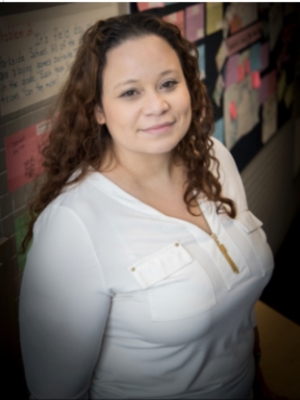La Violencia
[creative non-fiction]
My Colombia is one made up of summer stretches and the year I lived there after college. Later, I would come to learn about the time period between 1948 and 1958 known as La Violencia in Colombia after the assassination of Jorge Eliecer Gaitan, socialist presidential candidate of the time. Gruesome murders did not end after the violent decade. It evolved to la guerilla, narcotraffico, and a more corrupt government. And it followed Colombians past its borders and ocean waters.
It found itself in our two-bedroom apartment in Brooklyn.
Mami and Papi hated when the phone rang late at night, a sound more despised than the late-night street fights and sirens below our window on the avenue. I heard their frenzied shouts to one another first and then the nagging wail of the phone. “Se murió alguien,” Mami screamed. Her prophetic words, how someone must’ve died, was like a bolt through my body, forcing me to sit upright. My eyes strained to see in the dark, as I imagined the Grim Reaper on the other end of the line.
“Hijueputa,” Papi cursed the phone caller. His footsteps pounded and Mami’s chancletas followed behind, slapping the linoleum floor. And more often than not, the phone calls always brought tragic news from Colombia: the murder of Mami’s older brother by la guerilla; the motorcycle accident that eventually lead to Mami’s second youngest brother’s death; a second cousin bit by a snake, which ended with his leg being amputated; the invasion of the leftist group—la guerilla—in my Mami’s hometown of Chalan, who for decades had the country on its knees, and now claimed Mami’s home as their own. New York brought its fair share of news too: Papi’s youngest sister’s most recent miscarriage, my uncle being stabbed in a night club, or my Mami’s best friend who had her arm broken by her husband, Papi’s drinking buddy.
When the phone rang on a late Saturday afternoon on the second day of October, our shoulders did not tense nor did our pulse quicken. Papi grabbed the phone, expecting his buddies or Mami’s comadres.
“Quiubo,” he said into the phone receiver. It was the Colombian greeting, a chopped up: what’s happened?
I forced myself to remember the sound the phone had made days, weeks, and months later, certain I had missed a screeching pitch.
I remember a damp paper towel in my hand, a dusty rose-colored lampshade on my night table, and the sun streaming through the windows of my bedroom. My hand spun in a circular motion, watching as the dust became trapped in the sunlight, even after I heard Francisco had been shot in broad daylight. No ambulance, just a bleeding body shoved into a Renault. Pronounced dead upon arrival. All these details echoed throughout the apartment as Papi shouted them back out to the caller. Mami’s words of “no puede ser” over and over created a painful duet among them, and for a second, my hand flew to my mouth to stifle a laugh. My parents were finally in sync—their pain created a rhythm instead of the piercing feedback of static.
I lost track of myself, of time, and of space. I sat on the edge of my bed, my feet on the floor, yet I felt like I was floating. Staring at the pink rug of my room, I wondered if someone could actually disappear like in an episode of Scooby Doo. My arms limp at my side, I told myself not to move, that the pain would find me. I told myself Francisco was not dead. I would pretend he was alive. I had spent my whole childhood saying goodbye to my family in Colombia and the country itself, and unlike my sister, Joann, who cried the whole plane ride home, I refused to cry. I didn’t yet know that emotions could only be outrun for only so long. All those summers training myself to not miss Colombia, my family, and my dear primo, became muscle memory.
I wandered into the kitchen at one point. Mami and Papi sat with their heads in their hands, crying beside each other. Alone in their pain, they did not comfort each other. Or me. I stepped out of the kitchen backwards, my eyes fixed on my parent’s slumped shapes, feeling like an intruder. I heard them whisper how Francisco’s life was one of suffering, abandoned by his mother at my Abuelo’s home at a month old, an illegitimate son of Papi’s youngest brother. Francisco had always been in search of family.
The greatest violence Colombia committed against me was how I learned to live around it.
Connie Pertuz-Meza, a Colombian American writer, is inspired to pen pieces about her life, family, and ancestors. She’s an NYC public school educator, a mother of two teenagers, and a daughter of a mother who never went to school and who taught herself to read with a Bible, and of a father who was a journalist. Connie’s writing appeared in The Rumpus, Kweli Literary Journal, For Women Who Roar, Raising Mothers, Dreamers Creative Writing, Voices from the Middle, The Acentos Review, MUTHA Magazine, and several anthologies. Connie is a three-time VONA alum who is working on a semi-autobiographical YA novel, and a staff writer for Hispanecdotes and guest writer for Epifania Magazine.





